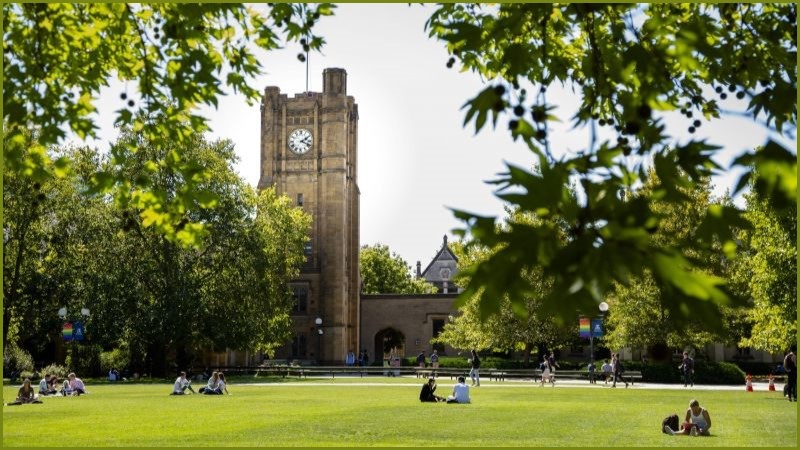Academics have named six Australian universities among the world’s 100 most prestigious institutions, according to a new international ranking that legitimises many of our largest universities amidst government efforts to expand access to higher education and training.
The University of Melbourne ranked 47th on the updated Times Higher Education (THE) World Reputation Rankings 2025, pipping the University of Sydney (60th), Monash University (63rd), the University of Queensland (78th), Australian National University (86th), and UNSW Sydney (97th).
The rankings – which are based on the opinions of more than 55,000 scholars globally – saw all of the universities rise compared to the 2023 rankings on the back of a revamped ranking methodology.
That methodology – which now includes ‘pairwise comparison’ and voter diversity measures that reward universities whose reputation spans a range of territories and subject areas – uses six indicators including teaching, research, industry engagement, and international outlook.
Melbourne University was strongest in Law – for which it was ranked 11th worldwide – as well as Education (16th), Clinical and Health (20th), and Psychology (25th); its Computer Science program ranked 50th in the world, some 19 spots ahead of that of the University of Sydney (69th).
Monash University’s Education faculty was ranked 19th in the world, with its Clinical and Health (31st), Engineering (59th), and Computer Science (61st) validating the strength of its STEM programs; the University of Queensland placed 57th, 68th, and above 125th, respectively, in these subjects.
The goal of the new rankings, THE explained, is “to provide a more robust assessment of reputation and reflect the fact that the subject of reputation is gaining a wider audience among the academic community.”
United States universities dominated the global top 10, with Harvard University placing first for the 14th year in a row and bellwethers MIT, Stanford University, University of California Berkeley, Princeton University, and Yale University all hovering at the top of the list.
Oxford (equal 2nd), Cambridge (equal 4th), China’s Tsinghua University (8th), and Japan’s University of Tokyo (10th) filled out the top 10, while the University of Western Australia, University of Adelaide, Queensland University of Technology and UTS Sydney also made the top 300.
Benchmarking Australia’s education strengths
THE’s latest prestige rankings – distinct from its World University Rankings, which were last updated in November and noted appreciable declines in Australian universities’ standing – are a “brand barometer” that reflects the institutions’ appeal to academics, the organisation said.
Each respondent was asked to nominate up to 15 institutions they saw as “excellent in teaching and research,” with those institutions nominated by academics in a wide range of countries and subject areas “deemed to have a more robust reputation than those with a narrower voter base”.
The relatively strong showing by Australian universities – particularly their strength in areas like industry engagement and international outlook – validates ongoing efforts to reinforce Australia’s standing as a regional education powerhouse.
It also reflects Australian research innovation, University of Melbourne vice-chancellor Professor Emma Johnston said, noting that “this acknowledgement from our peers around the world opens the door to new collaborations and more career opportunities for our students and researchers.”
Exclusive doesn’t have to mean excluding
Even as some Australian universities brandish their global reputations, others are pulling financial levers to attract more students.
RMIT University, for one, recently announced that it will soon welcome a cohort of 25 women and gender diverse students to participate in its second Earn and Learn program, a government-funded program providing a free Diploma of Information Technology.
“Programs like this are invaluable as they break down barriers to education and career advancement,” program coordinator Meray Abba said, adding that such programs provide “a sense of belonging” and “[address] systemic challenges like access to resources and opportunities.”
Like other alternative approaches such as non-degree pathways, free university courses will bolster government efforts to transform Australia’s vocational training sector as it shores up its value proposition against its ivory-tower neighbours.
Maintaining a strong position on lists such as THE’s reputation rankings is about more than bragging rights, noted Alliance Manchester Business School chair Timothy Devinney, who noted that many academics make an “inference” about people based on the institution they attend.
“If you are working with people with great reputations you have to provide far more value than you would if you were working with weaker scholars,” he explained.
“It might sound unfair and Darwinian, but it is the reality of how science advances rather than degrades.”










